Rules of conduct on an airplane: important nuances and subtleties of communication

Decades ago, flying was an enjoyable experience. People boarded the plane in a good mood and knew that on board they would receive good service and good food. The flight attendants smiled as if they had invited you to a party, not just a vehicle.
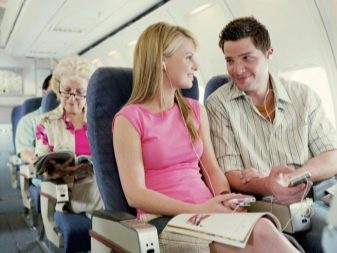
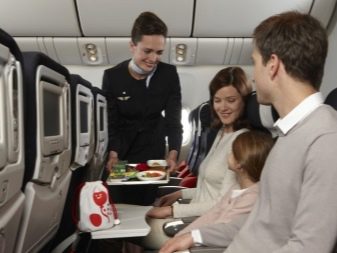
But times have changed. Flight rules became much more complicated due to safety requirements, and additional seats began to be added to airplanes. Long standing in queues for check-in, baggage check and pre-flight inspection in itself causes a feeling of discomfort, which only intensifies during a long flight in a tight space. To make your trip more enjoyable, learn some of the rules of conduct on the plane.
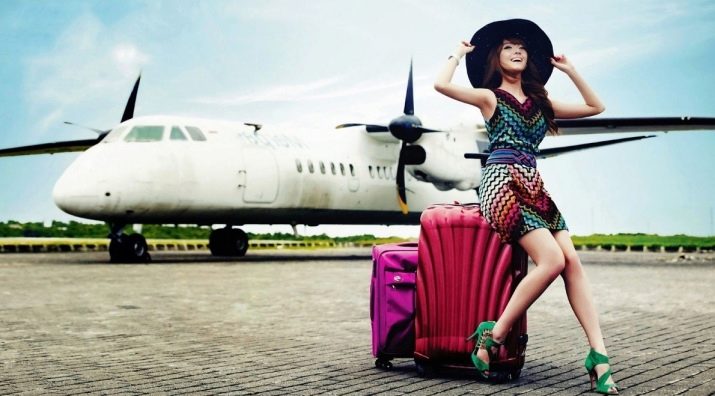
Basic principles of air etiquette
They are as follows:
- Respect others... No one will like a person who takes both armrests, tilts the chair back as much as possible, whose carry-on bag does not fit on the top shelf. Any items you bring on board the aircraft should fit in a small bag, which should be stowed on the top shelf or under the seat of the seat in front of you.
If you recline the seat back completely, be aware that you may obstruct the passenger from behind you.
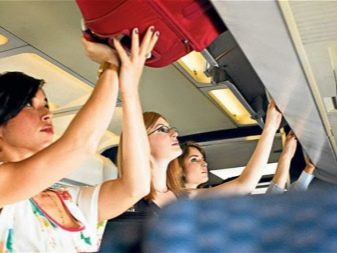
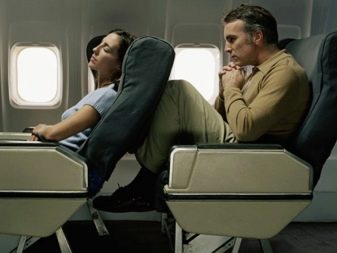
- Don't be a talker... Many people like to fly in silence, so say a greeting or introduce yourself before talking to your neighbor. If your neighbor responds to the greeting and immediately opens a book or puts on headphones, then you better stop trying to strike up a conversation.
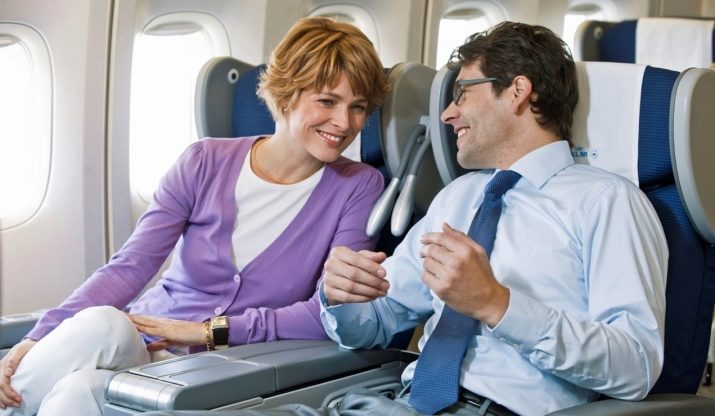
- Limit movement around the cabin... Constantly going to the toilet can be annoying for your neighbors, especially if you hurt their feet. Use the toilet before the flight, and during the trip itself, try not to drink a lot of fluids.If you know that you will be using the toilet often, choose an aisle seat and do not occupy a window seat.

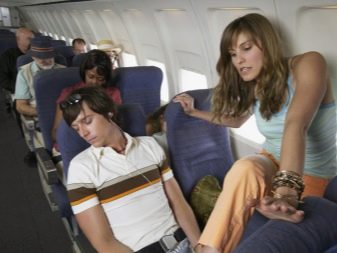
- Don't overdo alcohol... Don't be one of those people who immediately drink the maximum of what is allowed. If you are fortunate enough to sit next to one of these people and it annoys you, do not enter into a discussion with a drunkard. Instead, ask the stewardess to change your seat. If there is no free space, do your best not to interact with a drunk person.

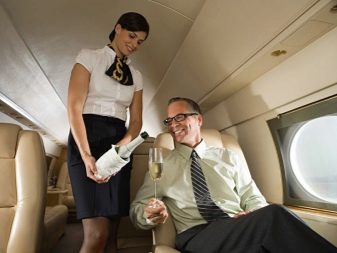
- Be polite to airline personnel. He has a great responsibility to ensure that you get to your destination safely and on time. Don't take too much of their time by talking. Other people need their attention too. If a member of staff asks you a question, try to be accurate and polite. Remember to say thank you.
- Limit smells and sounds. Avoid the temptation to pamper yourself with perfume, as you can cause allergies in those around you. If you bring any food on the plane, make sure it doesn't have a strong odor. If you are listening to music, adjust the volume so that it does not interfere with other people who may have different musical tastes. Also, don't be one of those people who chat on your cell phone while boarding.
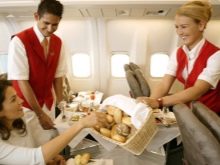
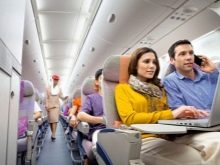
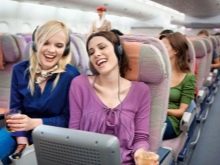
- If you're sick, give up the flight... The limited space of the aircraft practically guarantees the rapid spread of germs. Do not sneeze or cough in the presence of neighbors.
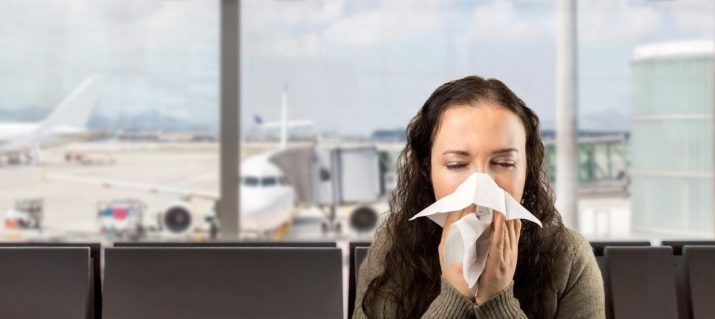
Memo for passengers with children
When flying with a child, you need to adhere to slightly different rules:
- If you are flying with children, then board the plane last. Ignore airline advice to let passengers with children go ahead. Otherwise, children will have to spend a lot of time on the plane before takeoff, they will be very bored and capricious.
- Take games and other entertainment with you... Arm yourself with goodies and snacks, fully charged gadgets, and tons of new (and silent) toys. If there are two parents, it is better that they take turns looking after the children. One will be able to rest at this time, and vice versa.
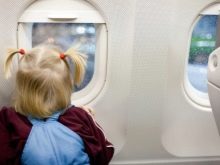
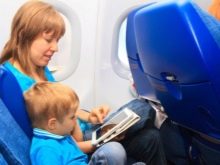

- Stay calm. Do not demand extra attention from the staff just because you are traveling with children. Don't let babies make noise or run around the cabin. Remember that no one is obligated to love your children, no matter how good they are.
- Remember that a flight attendant is not synonymous with babysitting.... She can help you during the flight, but she has a lot of other work to do. She is not able to provide constant care and supervision for your children.
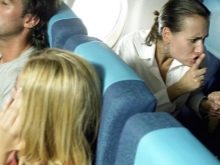
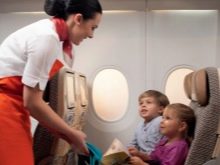
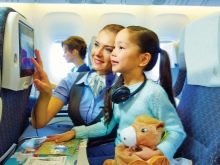
- The rest of the passengers should be kind to their parents.who do their best to curb their children. Say a few kind words to both parents and those children who are trying to behave correctly. A parent will never feel more reassured by a kind smile or understanding nod than at 10,000 m.
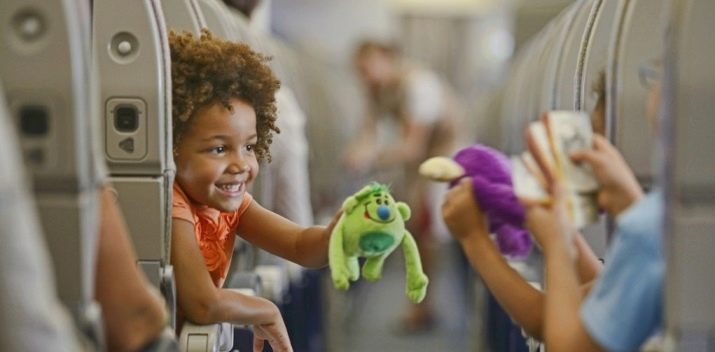
If you have fear of flying
According to the International Air Transport Association, about 6.5% of the population has aviophobia (fear of flying), and about 25% experience some kind of anxiety during the flight. This is especially true for those who are flying for the first time. Once on board an airplane for the first time, some people suppress their fears with sedatives or alcohol. Some even fly out a day early so that they have time to recover from such self-medication before starting work. However, there are ways to deal with these fears without falling into a drunken stupor:
- Find out the facts. You probably know that driving a car is much more dangerous than flying. Statistics say there is only one in 11 million chance of a plane crash, and even if it does, 96 percent of the passengers will survive. In addition, aircraft undergo extensive safety tests, from wing flexibility to extreme temperatures.
You are truly safer on the plane than in your own home.
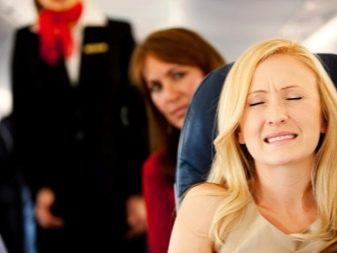
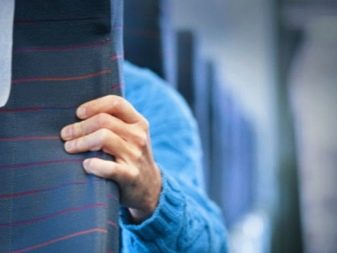
- Replace worrying thoughts with positive ones... In addition to statistical facts, you must fight bad thoughts. If you say the same thing to yourself over and over, you may end up believing what is causing your anxiety. To stop the cycle, it is recommended to use the anxiety suppression technique. For example, the statement "I am afraid to fly because I think the plane will crash" can be replaced with the following: "I know that flying scares me, but I think everything will be fine." Other positive expressions include “I'm safe,” “I'm fine,” and “I'm in good hands.” Every time you start to feel fear, repeat these phrases over and over in your mind.
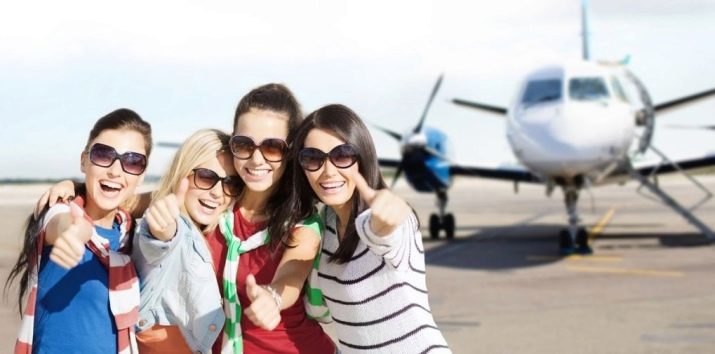
- Get distracted... Even if your flight lasts only an hour, this is enough time to panic. Before you fly, create a to-do list that you want to do while in the air, and then do your best to get it done. You might want to read a chapter in a book, develop ideas for a birthday party, write thank-you notes that didn't have time before, work on a business project, or organize images on your phone or computer. Another distraction is to use a tool called visualization.
Imagine that you are in some scenic and beautiful place that you have been to or where you would like to go. Feeling yourself in a place where everything calms and pleases you, you will begin to relax and your anxiety will decrease.



- Focus on your breathing... If you start to feel anxious, take care of your breathing. Worry often makes us breathe fast and shallowly. Taking slow, deep breaths can help us relax. Breathe in through your nose in two counts, hold your breath for two counts, breathe out gently in four counts, and then hold your breath for one count. Repeat five to ten times. Regular deep breathing increases the supply of oxygen to the brain and stimulates the parasympathetic nervous system, which is responsible for your calmness.
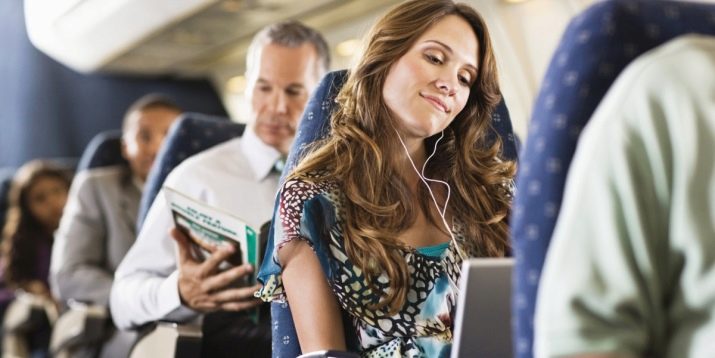
You can learn more about flight safety rules by watching the following video.








